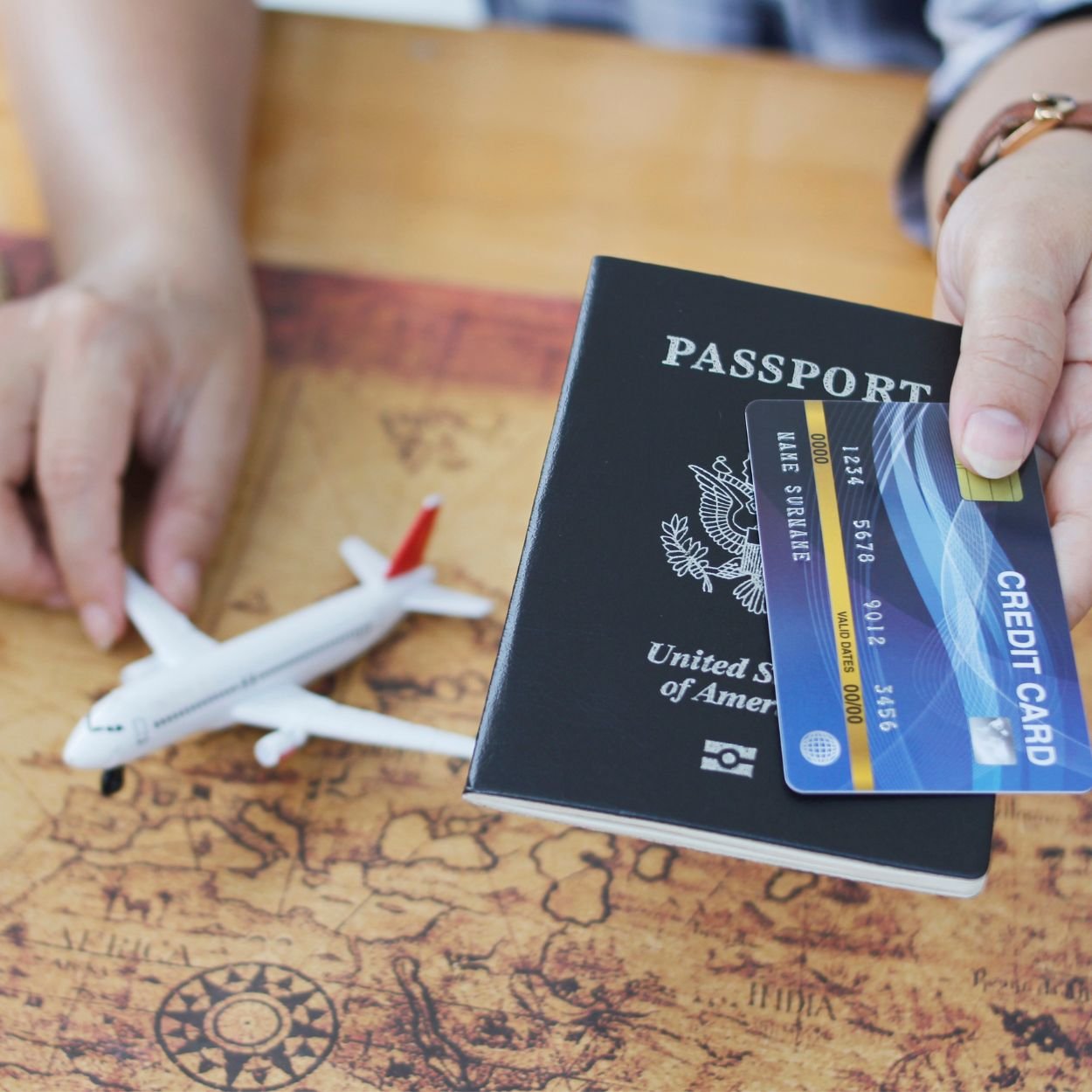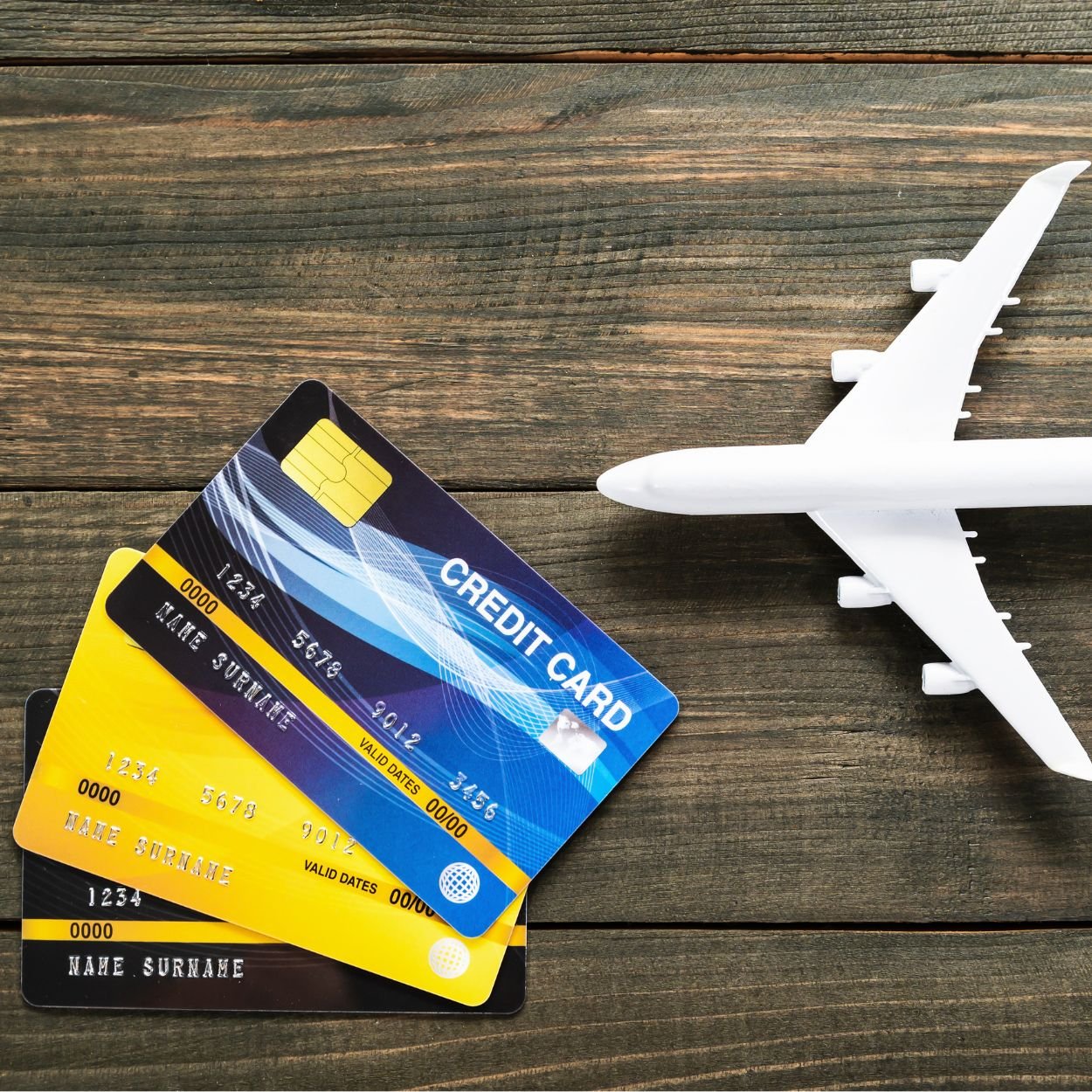The best credit cards for travel are some of the most powerful tools savvy travelers use to make every trip more affordable, more comfortable, and more rewarding. These cards turn your everyday spending (on groceries, gas, dining, and streaming) into points or miles that can be redeemed for flights, hotel stays, upgrades, and more.
Instead of paying out of pocket for expensive airfare or luxury accommodations, you can use your earned rewards to fly in business class, enjoy free nights at high-end hotels, or score room upgrades and VIP perks. Many of the best travel credit cards also come loaded with valuable extras like priority boarding, free checked bags, lounge access, TSA PreCheck credits, and comprehensive travel insurance.
I like to think of the best credit cards for travel as your silent co-pilot: always working behind the scenes to elevate your experience while cutting down your costs. When used wisely, they open doors to travel opportunities that once felt out of reach, and turn everyday purchases into extraordinary adventures.
The Best Credit Cards For Travel: Why Travel Credit Cards Matter
If you’re wondering whether travel credit cards are worth the hype, the short answer is: absolutely, if you know how to use them. Travel credit cards aren’t just for jet-setters or business travelers. They’re for anyone who wants to make their money work harder and get rewarded for everyday purchases.
From free flights and luxury hotel stays to lounge access and trip protection, these cards can completely transform how you travel. In this section, I’ll break down why travel credit cards are so powerful — and why you should seriously consider getting one, even if you only travel once or twice a year.
Travel More, Pay Less
Travel credit cards are your ticket to traveling smarter. By earning miles, points, and travel credit card bonuses, you’re not only saving money — you’re opening the door to first-class experiences, free nights at amazing hotels, and even once-in-a-lifetime adventures through Viator.
Everyday Spending Turns Into Travel
I love this part: you don’t have to be a frequent flyer to benefit from travel credit cards. Groceries, gas, streaming subscriptions, and dining out can all help you build a travel fund in the background.
Who Should Get a Travel Credit Card?
Are Travel Credit Cards Right for You?
If you:
- Travel at least once a year (even domestically)
- Have good or excellent credit
- Want to earn rewards, not just cash back
- Like the idea of free flights and upgrades
…then yes, absolutely. Travel credit cards were made for you.
The Different Types of Travel Credit Cards
1. General Travel Rewards Cards
These are flexible cards like the Chase Sapphire Preferred or Capital One Venture, where points can be used across multiple airlines and hotels — or for statement credits against travel purchases.
2. Airline Credit Cards
Airline co-branded cards like the Delta SkyMiles® Gold or United Explorer Card earn miles directly with one airline and often include perks like free checked bags, priority boarding, and discount inflight purchases. For more on these, check out our comprehensive guide to airline credit cards.
3. Hotel Credit Cards
Think Marriott Bonvoy, Hilton Honors, or World of Hyatt. These cards are great for frequent hotel guests and usually offer free nights, elite status, and points that can be redeemed for stays around the world.
What Makes a Travel Credit Card “The Best”?
Here’s What I Look For:
- Big Sign-Up Bonuses – This is where the value is. I’ll show you the best credit card bonus offers worth thousands in free travel.
- Flexible Rewards – Points that can transfer to airlines or be used across travel platforms like Expedia.
- High-Earning Categories – Think 3x on dining, 5x on travel, etc.
- No Foreign Transaction Fees – A must-have if you travel internationally.
- Travel Perks – Lounge access, TSA PreCheck credits, travel insurance, and more.
Best Travel Credit Cards Right Now
Here are the top contenders, based on real-world value and my own experience:
Chase Sapphire Preferred® Card
- 60,000 points after spending $4,000 in 3 months
- 2x points on dining and travel
- Points transfer to 14 airline and hotel partners
- $95 annual fee
I always say: if you’re new to points, start here.
Capital One Venture Rewards Credit Card
- 75,000 miles after $4,000 in 3 months
- 2x miles on every purchase
- Miles can erase travel purchases or transfer to partners
- $95 annual fee
Great for simplicity and value.
American Express® Gold Card
- 60,000 points after $4,000 in 6 months
- 4x points on dining, 3x on flights
- Points transfer to airlines like Delta, British Airways, and Emirates
- $250 annual fee (but tons of credits to offset it)
This card turns foodies into frequent flyers.
How to Choose the Best Card for You
1. Know Your Travel Style
Do you fly one airline often? Prefer Airbnb or hotels? Chase beaches over cities? Your travel habits shape which card is best for you.
2. Consider Transfer Partners
Cards like Chase and Amex let you transfer points to airline and hotel partners. This is where the real travel hacking begins. I’ve booked $6,000 flights for $5.60 thanks to smart transfers.
3. Understand Redemption Options
Some cards offer fixed-value redemptions (like 1 cent per point on Expedia). Others offer better value through transfer partners. For example, 60,000 Amex points might get you $600 in travel — or a $2,000 business class ticket through a partner airline.
Need help mastering this? Read our full guide to earning free travel with points and miles.
Top Travel Card Perks That Add Real Value
1. Airport Lounge Access
Cards like the Amex Platinum or Capital One Venture X come with Priority Pass, giving you lounge access in airports worldwide. Think free food, drinks, Wi-Fi, and a quiet space.
2. Global Entry or TSA PreCheck Credits
Many premium travel cards cover the $100 application fee for these programs, making airport security a breeze.
3. Travel Insurance
Trip delay, lost baggage, and rental car coverage are common on travel cards, and they’ve saved me thousands over the years.
4. Free Hotel Nights
Hotel cards often include one free night per year, which can easily outweigh the card’s annual fee.
Mistakes to Avoid With Travel Credit Cards
1. Overspending to Chase Bonuses
Don’t spend money you don’t have just to earn a bonus. Be smart. Plan ahead and time large purchases when opening a new card.
2. Letting Points Sit Too Long
Points lose value over time and may expire. Use them strategically, and don’t hoard unless you have a big trip in mind.
3. Only Using One Card for Everything
Different cards earn more in different categories. I rotate 2–3 travel cards to maximize points daily.
Maximizing Points With Everyday Spending
Grocery Runs = Future Getaways
Some travel cards offer 4x or 5x points at supermarkets. That’s massive value over time.
Dining Out = First-Class Flights
A couple of nights out per month can net you thousands of points per year, especially with cards like Amex Gold or Chase Sapphire Preferred.
Booking Travel With Points
Use Travel Portals for Simplicity
Booking with Expedia or your card issuer’s travel portal is easy and flexible.
Or Transfer Points for Maximum Value
Transferring points to an airline program gives you the chance to fly business class for economy prices.
My Travel Card Strategy in Action
Here’s a real example from my last trip:
- I opened the Chase Sapphire Preferred and earned the bonus.
- Transferred points to United and booked a roundtrip flight to Lisbon (only paid $76 in taxes).
- Booked my hotel using Expedia and erased it with statement credits.
- Used my TSA PreCheck credit to breeze through security.
Total savings: Over $1,200.
Travel Experiences Funded by Credit Cards
1. Safari in Kenya
Used Amex points to fly Qatar Airways Qsuites (worth $3,000+).
2. Island-Hopping in Greece
Paid for ferries and boutique hotels using statement credits.
3. Food Tour in Tokyo
Booked through Viator — paid nothing thanks to cashback.
How Many Cards Should You Have?
I recommend starting with one solid travel card. Once you’re comfortable, add a second for a specific airline or hotel chain. Personally, I rotate 3–5 cards, depending on the category and trip type.
Managing Points and Cards Without the Stress
- Use AwardWallet or CardPointers to track rewards and benefits
- Set calendar alerts for annual fees
- Automate bill pay to avoid interest
FAQs About Travel Credit Cards
Are travel credit cards worth the annual fee?
If you use the benefits — yes. One free hotel night or a TSA PreCheck credit can easily cover it.
Can I use travel rewards for more than just flights?
Absolutely. Hotels, rental cars, tours through Viator, and even cruises can be booked using points.
What credit score do I need?
Most cards require a score of 670+. Premium cards often need 720+.
How to Apply for a Travel Credit Card (The Smart Way)
- Check your credit score
- Research which card fits your goals
- Time the application around large expenses to meet the bonus
- Track your progress to make sure you don’t miss out
For current top offers, check out our best credit card bonus offers.
Final Thoughts: Start Traveling Smarter Today
If you’ve made it this far, then you’re serious about traveling better — and smarter. I think travel credit cards are one of the most powerful tools for making unforgettable adventures more affordable, accessible, and fun.
With just one good travel card, you can:
- Earn points on everyday purchases
- Redeem those points for free flights and hotel nights
- Access premium travel perks like lounge entry, trip insurance, and elite status
It all starts with choosing the right card. I’ve laid out the best options, broken down the strategies, and shared my own travel wins to help you do exactly that.
So what’s next?
- Pick your card.
- Plan your next trip.
- And when you’re sitting in that window seat heading somewhere amazing, remember — your card helped make it happen.
And hey, when you get there? Send me a postcard.
Pro Tips:
Our Guide to Free Travel With Points And Miles
Our Guide to Airline Credit Cards
Our Guide to Airline Frequent Flyer Programs
Best World Destinations & Travel Deals & Packages








